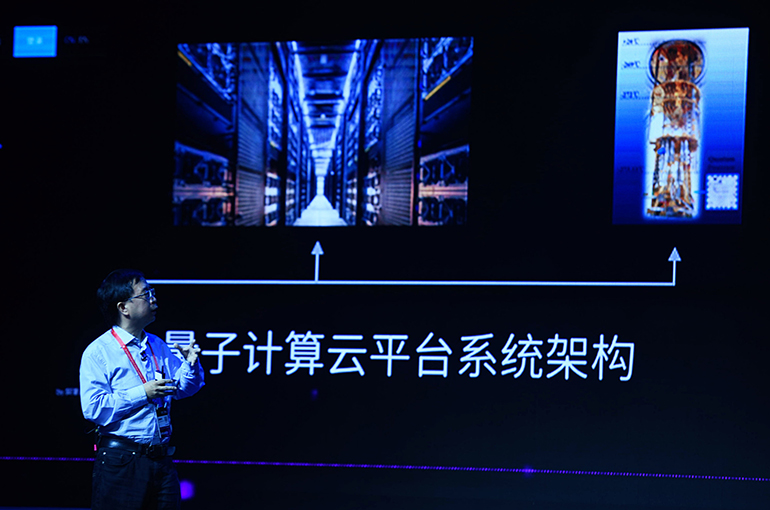 Chinese Quantum Computer Shatters World Record
Chinese Quantum Computer Shatters World Record(Yicai) Oct. 11 -- The latest version of China’s quantum computer has broken the world record for quantum computing in a scientific test, further cementing the country’s status as a global leader in the field of photonics quantum computing.
The Jiuzhang 3 prototype achieved a speed that is 1 million times faster at solving Gaussian Boson Sampling problems compared with its predecessor, according to an article published in Physical Review Letters yesterday.
A research team from the Anhui-based University of Science and Technology of China and a research institute under the Chinese Academy of Sciences collaborated to build the prototype, with 255 detected photons, which improves the level of photon manipulation and the complexity of quantum computing.
Gaussian Boson Sampling is a form of photonic quantum computation. It exploits the principles of quantum mechanics to perform certain types of computations deemed challenging for traditional computers.
The article noted that Frontier, the US-developed supercomputer which is currently the fastest in the world, would need about 600 years to generate a single ideal sample, while Jiuzhang 3 can do it in just 1.27 microseconds.
The successful construction of Jiuzhang 3 means the quantum computer formulated by Richard Feynman, winner of the 1965 Nobel Prize in physics, has been realized, Prof. Lu Chaoyang of the University of Science and Technology of China told Yicai.
Lu, who took part in the research behind the new machine, said it also offers a technical basis for research and development into quantum computers that can have more general applications.
A quantum computer is theoretically capable of ultra-fast parallel calculations that are far beyond that of traditional computers, and the technology could be applied in big-data optimization, weather forecasting, material design, drug analysis and many other fields, said Pan Jianwei, another of China’s key researchers in the field.
In 2020, a team led by Pan built the first Jiuzhang machine, with 76 detected photons, before developing the Jiuzhang 2 with 113 photons the following year. Pan has previously said that the aim is to develop a quantum computer that can be used to tackle general problems by 2025.
Editors: Dou Shicong, Tom Litting